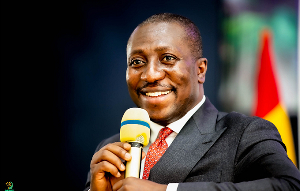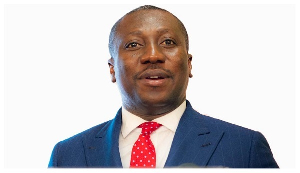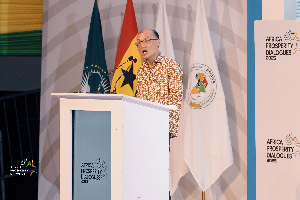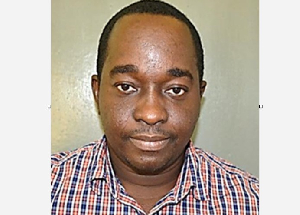I am really overjoyed by the anecdotal arguments presented both in defence, and in rejection, of chieftaincy, and its role in twenty-first century politics and national development. First of all, those who equate indigenous chieftaincy with an absolute, or a constitutional, monarchy have no argument. The two are not the same, and any effort to harmonize these two unrelated bodies of power will be futile. “Akanga menye avako o.”
First of all, our nation’s Otumfuos, the Oseadeayos, the Osiems, the Togbes, and other titled chieftains are not Heads of state, and cannot be accorded the privileges of “primus inter pares.” Our chiefs, whether they are labeled as Kings, Super-Kings, or Mini-Kings, don’t have executive prerogatives, and are subject to the laws of the state. Secondly, we cannot allow the supporters of chieftaincy to rewrite history by transplanting a promising millennium into the past. Why would, and should, a nation continue to glorify the subjective achievements of a pre-colonial institution that took part in some of the most frightful crimes, imaginable, in our nation’s history; the enslavement, and sale, of booties of war, as slaves, to European merchants? As we know, the inverting of history does not tell a story in its entirety, and we don’t need the griots of “ahenfie” to sweeten the distasteful past of a gloomy institution with “ntekuma anansesem.”
The notion that our present traditional culture fully embodies undiluted historical practices is weak to say to least. Culture is not frozen in time and space. Instead of glorifying indigenous traditions, many of which are presently obsolete, culture must be viewed from a revolutionary perspective. Culture must not be told from reconfigured oral accounts to mollify the fictional magnificence of chieftaincy, and in duping the minds of its supporters into believing in the self-inflated value of their narcissistic chiefs. In Obenewaa’s judgement, the repackaging of unverifiable anecdotes to give meaning, and value, to chieftaincy, an eroding institution, that is hitched to primitive tradition is worth a debate.
While some commentators tout chieftaincy as relevant in settling human disputes, the settlement of conflicts in all areas of socio-human relations are not the reserved specialty of chiefs as some would want us to believe. Conflict resolution is an innate attribute found in humankind. To therefore suggest that chiefs have the exclusive aptitude in settling micro-level conflicts is to give an undeserving credit to an ascribed institution that, has in some cases, chosen idiots as leaders to the detriment of the stifled majority. In most egalitarian societies, one hardly hears, or sees, needless conflicts initiated by a thoughtless leadership. The preceding statement dismisses the myth that our nation’s chieftaincy is an anchor in the preservation of social order at the micro-level.
The threat to the Ghanaian state, among other things, is not the nation’s military, but the resurgence of chieftaincy. The Dagbon crisis and the recent Anloga violence speak to an institution that glorifies the cryptic, venerates repression, and feeds on human ignorance. Despite the lull in violence in Dagbon, it would be imprudent to suggest that the absence of violence in the region signifies a solution to the simmering problem. If anything, the nation’s chieftaincy has exploited the magnanimity of the state, and Ghanaians, and has unraveled national unity at the seams. The Tsito-Peki conflict, the Konkomba-Nanumba War, the Nkonya-Alavanyo hostility, among other low-scale conflicts prove that, allowing depraved institutions the latitude to impose their primitive ideology, and prehistoric authority could lead to senseless killings.
The functions of transferring society’s cultural heritage are diffused, and no Ghanaian chief can claim private ownership to the dissemination of society’s cultural values. From a modernist perspective, certain cultural values are universal, and the presupposition that the nation’s chieftains are the divine custodians (of indigenous cultural purity) against unsolicited Western influences rings hollow to a trained mind. Isn’t it ironic that, while our nation’s traditional rulers profess to safeguard authentic culture, they prefer Holland’s Aromatic Schnapps to the locally-brewed “akpeteshie?” Where money is concerned, these chiefs quickly adorn themselves in Western suits to beg for loans for “nkosuo adwuma.” Oddly, some of our nation’s chiefs have become walking billboards for Western corporate entities. Jogging in their “obroniwawu” Nike garbs, and running shoes, is their way of showcasing twenty-first century modernity. In today’s Ghana, it is not surprising to see some of our chiefs adopt Western titles, such as “Chief-Doctor-Professor,” and not “Nana-Obenefo-Odikyerekyereni.” Does not the adjoining of foreign titles, such as “dokita” to “nananom-abodin kesie”contradict the quintessence of “ahendie" and "nananom amamere?
The desperation of some Chiefs is evident by the speed with which they enstool Westerners as “Nkosuohene.” When did the despised European suddenly become an ally, and for what reason? Why would an institution that preaches against the unwholesomeness of Western culture allow unscreened foreigners to become part of a closely guarded institution? Does not the indecision within the chieftaincy institution raise serious questions about the commitment of the establishment in preserving indigenous traditions? Or, is the enstoolment of White chiefs a biddable venture, which is craftily put together, to generate foreign income for some of our dollar-minded chiefs? Are our chieftains not rehashing the very conduct that dispossessed them of their lands and resources? As part of a subtle criminal project, some of our most admired custodians of indigenous traditions marry their family members to their European sub-chiefs with the intention inheriting “obroni-awudie.” As to what a pauperized “Obroni,” who is social assistance, can offer his host confounds me.
The nation’s chieftaincy is an albatross to national development. The Kofi Kyintoh’s case, the Abesim ritual murder, and many unpublicized stories of human barbarity are testament to the crudeness of chieftaincy. Why would any rational mind call for human sacrifices to appease the “nkowha tuntum”? What benefits does human sacrifice bring to our nation’s democratic governance? Would the defenders of chieftaincy still validate human sacrifice, and offer their family members to be sacrificed? Why wouldn’t they, having conceitedly beaten their caved-in chest and invoked the bravery of the “Tweneboa Koduas?” Isn’t human sacrifice part of the chieftaincy culture? If not, since when did things change, and when did it dawn on the advocates of chieftaincy preservation that, culture is not a fixed concept, but a navigable idea that is malleable to rationality and humankind’s aspiration for perfectibility?
The enstoolment of certain chiefs whose perceptive insights hardly go beyond their eyebrows poses a challenge to our nation’s hopes for measurable development. The adoption of cultural fatalism, as part of micro-level governance, by the nation’s chieftaincy shows the rearward disposition of this primordial institution. How many able-bodied men has chieftaincy denied the opportunity to educate themselves to break free from prehistoric traditions? While some commentators would use Nana Asantehene’s Scholarship Fund as one of the many achievements of modern chieftaincy, wouldn’t t be prudent to advise Manhyia to fund the education of the “ahenekwaas” whose current state will make slaves out of their children, and deprive the nation of productive brains. How many of the recipients of Otumfuo scholarship really need it? How many of these recipients would stay in the country, or return to help the nation, when they complete their education? Am I anti-Ashanti for exercising my constitutional right to putting an imperative issue that affects my nation on the table for a serious discussion? Let my nation judge me.
In our era where the spread of HIV/AIDS is threatening human, and food, security, we see newly enstooled chieftains take on many wives, and mistresses, to feed their insatiable sexual appetite. I have always watched with disquiet the shamelessness of the state in engaging the services of sex-addicted chiefs in promoting HIV/AIDS awareness. Where in the world does the state recruit a cat, as a sentry to watch over a meaty mouse? In some isolated cases certain chiefs have abused their power by violating the matrimonial sanctity of homes, and taken on the wives of the subjects. Sad to say, the supposed traditionalists rationalize their perverted conduct by quoting biblical verses and citing the King David-Uriah analogy to validate their theft of the village Bathshebas. How convenient! When Judaism become part of the indigenous scroll?
Twenty-first Ghanaian chieftaincy lacks the self-discipline of modern leadership. Given the complexity of a modern state, we cannot rely on an institution that barely understands the dynamics of modern democratic governance, and rejects the informative directives on constitutional fairness. Is there reason in reforming an institution that is gripped by “mansosem ene akesesem,” and looks for avenues to replenish its empty coffers after a binge? In my opinion, the National and the Regional House of Chiefs are social clubs with weak sub-national actors whose reactive approach to resolving problems are partially responsible for the increasing conflicts that are currently distressing the nation. Understandably, the nation’s partisan chiefs would not critique the unwise policies of the state even if it drives thousand lives to their shallow graves.
In recent years, we have seen the exploratory interests of indigenous chieftains to internationalize chieftaincy. In Canada, the United States, Holland, etc, we are witnessing simmering conflicts over the enstoolment shady characters as Chiefs and Kings; a project that is engineered by certain Ghanaian chiefs despite protestations from the subjects in the Diaspora. As a reward for imposing his choice on his overseas subjects, Nana’s is guaranteed the payment of American Dollars, Bacardi, Johnny Walker, and Givenchy on Christmas Eve. Well, I thought, “Nananom-Nsamanfuo” were disinclined to receiving anything foreign to the indigenous culture. Let’s wait patiently for the cyber-Osamas who will try to contort my message. Let’s wait to read from the cyber-editors who will rewrite the entire article to make themselves feel extraordinary in their uninspiring ambiance. Penmanship is the weapon of twenty-first societal transformation, and not a cyber browbeating to intimidate a resilient spirit. We are not a serious nation. Are we? I will prevail. I wish my nation well. Good day and cheers.



















